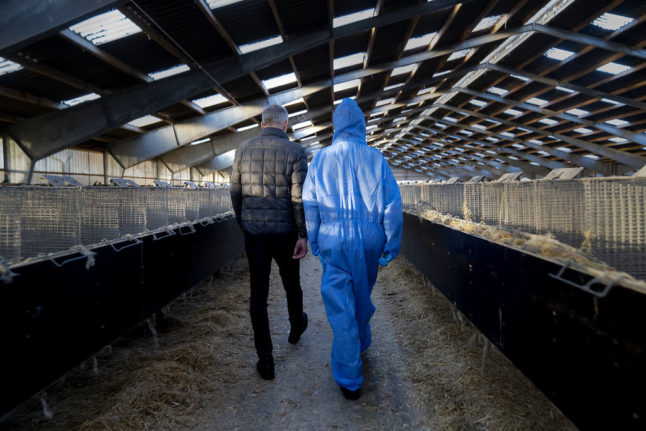After a mutated version of the coronavirus was found in the animals, Prime Minister Mette Frederiksen announced a cull in early November of the estimated 15 to 17 million minks in Denmark, the world's biggest exporter of their fur.
Once a mass gassing programme had already begun, a court challenge to the order found that the executive's decision had no legal basis, leading to the resignation of the agriculture minister.
Now problems have emerged with the disposal of the dead animals amid fears that phosphorus and nitrogen could be released in large quantities into the soil surrounding mass graves due to the decomposition process.
Denmark's new minister for agriculture, Rasmus Prehn, on Friday expressed his backing of the idea of exhuming the culled minks and burning them, while saying such a move would need the approval of the country's environment agency.
“The desire to get rid of the minks and burned I have had since the first day I heard of it,” he told broadcaster TV2.
A majority of the Danish parliament, where the idea has been debated, supports the idea.
Earlier this week, in the western Holstebro municipality, gases released during the decomposition process started to push the carcasses back to the surface of a burial pit that was too shallow.
On Thursday, Prime Minister Frederik wiped away tears and apologised for the handling of the crisis as she visited one of the affected mink farmers.
“I don't have any issues with apologising for the course of events, because mistakes have been made,” Frederiksen, told broadcaster TV2.
The cull was ordered out of fears that a mutated coronavirus found in mink would render vaccines against the disease less effective.
Last week, the Danish government concluded that the potential threat to human vaccines was “very likely extinguished”, in the absence of any new cases of the mutated version.
More than 10 million minks have already been culled in Denmark, according to the latest tally.
READ ALSO: Denmark's culled minks rise from mass grave



 Please whitelist us to continue reading.
Please whitelist us to continue reading.
Member comments